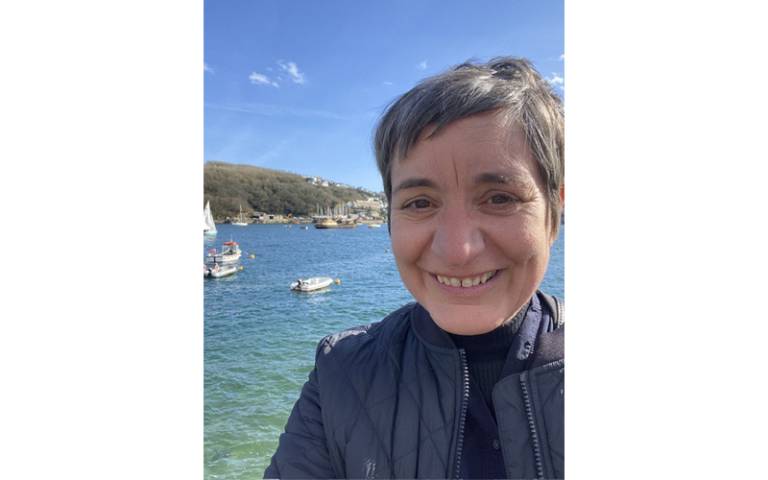Creative Career Talk with Flo Paul
19 October 2023
We welcomed Flo Paul, Learning and Participation Director at Stratford East to talk to students from UCL School for the Creative and Cultural Industries (SCCI) about her experiences and to share insights into her career path.

Flo has 30 years of experience working in the creative and cultural sectors, in areas ranging from film and television to circus and community arts.
She specialises in participation and socially engaged arts. In her current role as Learning and Participation Director at Stratford East, an award-winning producing theatre in the heart of Newham, she leads a team creating innovative participation programmes for young people, communities and emerging artists.
During her talk, Flo discussed her educational history having gained a Stage Management Diploma in her early 20s and later earning a degree as a mature student in Arts Management. She also talked about the importance of lifelong learning and gaining experience in the sector as much as possible from an early age; for example, Flo took on volunteering roles in youth theatres from age 16, as well as working as an assistant stage manager with a circus and at festivals such as Glastonbury.
Flo’s top tips for developing a career in the arts were:
- Understand where your strengths lie by trying out different roles
- Build your skillset and keep learning
- Make connections and build your network
- See lots of different types of work
- Be prepared to work long hours and show commitment but don’t work for free!
- People skills are essential
- Don’t narrow your career path too early on
- Don’t underestimate the need for tip-top administrative skills
Flo concluded her presentation by discussing the wide range of opportunities available for young people at Stratford East, including their Young Creatives and Young Technicians programmes, and future opportunities for university students.
The online talk is part of our Creative Careers series, which aims to highlight different career pathways and employment options by interviewing different people who work in the creative and cultural industries.
 Close
Close

